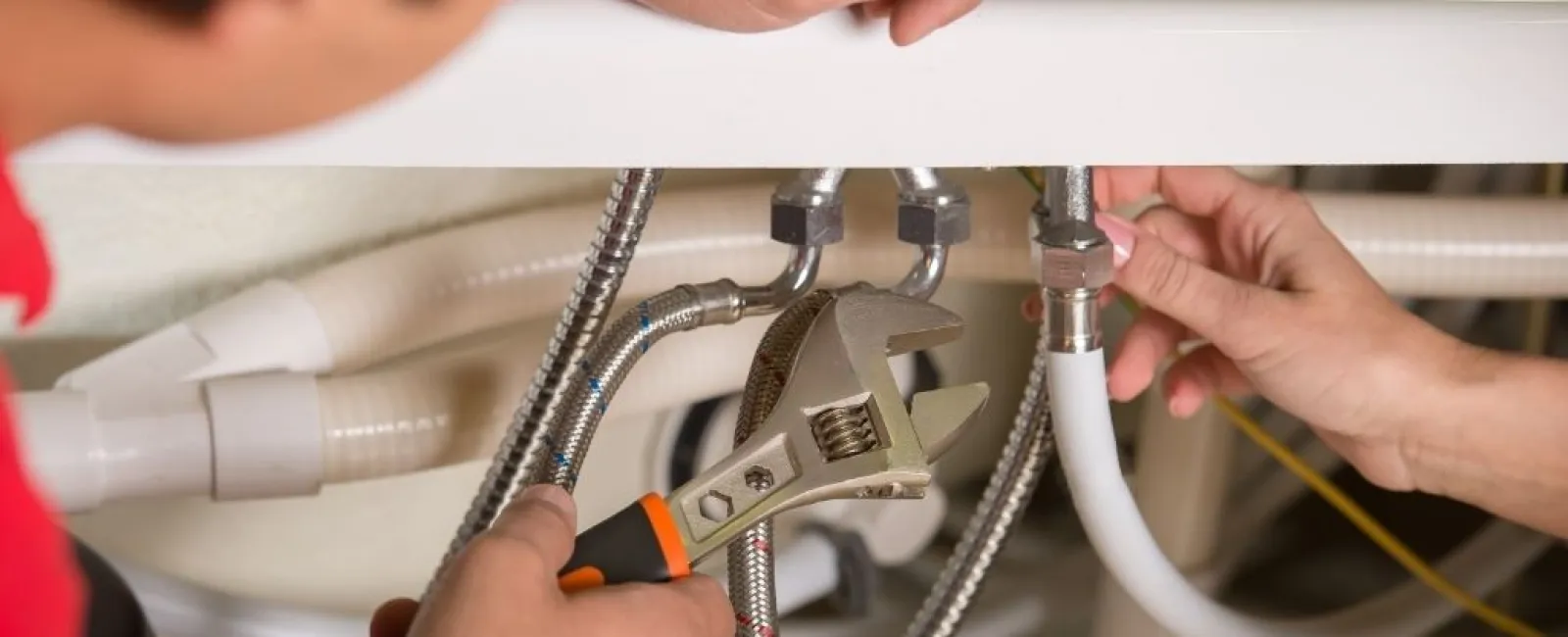October 24, 2025
What's That Black Stuff Coming Out of Your Faucet?
Have you noticed mysterious black gunk accumulating around your faucet or sink drain? You're not alone. Many homeowners discover this unsightly buildup and immediately worry about their water quality and health. The good news is that this common issue is usually harmless - but understanding what causes it and how to address it can help you maintain a cleaner, healthier home.
What Causes Black Stuff in Your Sink?
The black sludge in your sink is typically oxidized manganese. Manganese is a naturally occurring mineral found in trace amounts in groundwater, particularly in areas like Georgia and throughout the Southeast. When manganese dissolved in your water comes into contact with oxygen in the air, it undergoes a chemical reaction called oxidation. This process transforms the mineral into a black or dark brown substance that accumulates on surfaces like faucets, sink drains, and aerators.
Over time, this oxidized manganese builds up as a slimy, black residue around your fixtures. While it looks concerning, it's actually a naturally occurring phenomenon that affects thousands of homes.
Is Black Sludge in Sink Dangerous?
This is the question most homeowners ask first: is black sludge in sink dangerous? The short answer is no, oxidized manganese is not harmful to humans or pets in the trace amounts typically found in residential water supplies.
While bacteria can feed on oxidized manganese deposits, these bacteria are generally harmless. The Environmental Protection Agency (EPA) has established that manganese in drinking water at levels below 0.3 milligrams per liter is safe for consumption.
However, it's important to distinguish between harmless oxidized manganese and potentially dangerous black mold. Here's how to tell the difference:
Oxidized Manganese:
- Appears as a slimy, uniform black or brown coating
- Smooth texture
- Found primarily where water sits or flows
Black Mold:
- Dark green to black color
- Spotted or patchy appearance
- Fuzzy or rough texture
- May have a musty odor
- Often appears in damp areas with poor ventilation
Black mold can cause health issues, including respiratory problems, allergic reactions, and asthma attacks. If you suspect mold growth rather than mineral buildup, contact a mold remediation specialist for proper testing and removal.
How to Clean Black Gunk From Faucet and Sink
Removing oxidized manganese from your fixtures is straightforward with regular maintenance. Here are the most effective cleaning methods:
Method 1: Dish Soap and Water (For Regular Cleaning)
- Mix warm water with a few drops of dish soap
- Use a soft cloth or non-abrasive sponge to gently scrub the affected areas
- Rinse thoroughly with clean water
- Dry the fixture to prevent new buildup
Note: Dish soap removes the slime but won't eliminate staining on fixtures.
Method 2: Vinegar Solution (For Stain Removal)
- Mix equal parts white vinegar and water
- Apply the solution to stained areas using a soft cloth
- Let it sit for 5-10 minutes
- Gently scrub with a soft brush or cloth
- Rinse thoroughly and dry
Caution: Be gentle when applying vinegar to avoid damaging your faucet's finish, especially on chrome or brushed nickel fixtures.
Method 3: Baking Soda Paste (For Stubborn Stains)
- Mix baking soda with a small amount of water to create a paste
- Apply the paste to stained areas
- Let it sit for several minutes
- Gently scrub in circular motions
- Rinse thoroughly with water and dry
Cleaning the Faucet Aerator
Don't forget to clean your faucet aerator, where black buildup often accumulates:
- Unscrew the aerator from the faucet tip
- Disassemble the parts carefully, noting their order
- Soak components in white vinegar for 30 minutes
- Use an old toothbrush to scrub away deposits
- Rinse all parts thoroughly
- Reassemble and reattach to the faucet
Long-Term Solutions: Preventing Black Buildup
If you're tired of constantly cleaning oxidized manganese from your fixtures, consider these preventive measures:
Water Softener Installation
A whole-house water softener can reduce manganese levels in your water supply. These systems are particularly effective for homes with well water, where manganese concentrations tend to be higher. Water softeners work by exchanging minerals like manganese for sodium ions, effectively removing them before they can oxidize.
Keep in mind that water softeners require:
- Professional sizing to match your household's water usage
- Initial installation costs ($1,500-$3,000 on average)
- Regular maintenance and salt replenishment
- Periodic system checks
Oxidation Filtration Systems
For homes with well water and significant manganese issues, oxidation filtration systems provide another solution. These systems accelerate the oxidation process in a controlled environment, filtering out the oxidized manganese before it reaches your fixtures.
Regular Maintenance Schedule
Even with a water treatment system, establishing a cleaning routine helps keep fixtures looking their best:
- Wipe down faucets weekly
- Clean aerators monthly
- Flush your plumbing system periodically to prevent buildup
When to Call Total Mechanical Care
While oxidized manganese buildup is typically a cosmetic issue, certain situations warrant professional attention:
- Sudden increase in black deposits: This could indicate changes in your water supply or plumbing system issues
- Leaky faucets: A dripping faucet that leaks every five seconds wastes approximately 400 gallons annually, increasing your water bills and potentially encouraging mineral buildup
- Persistent staining despite regular cleaning: This might indicate higher-than-normal manganese concentrations
- Suspected mold growth: Professional assessment is crucial to determine if you're dealing with harmful mold rather than harmless mineral deposits
- Interest in whole-house water treatment: Our experts can assess your water quality and recommend appropriate solutions



